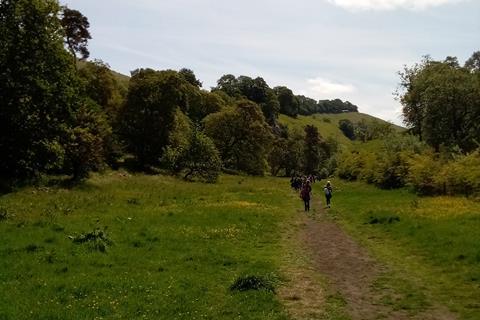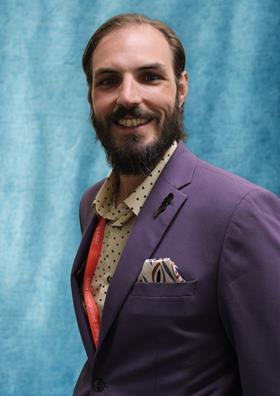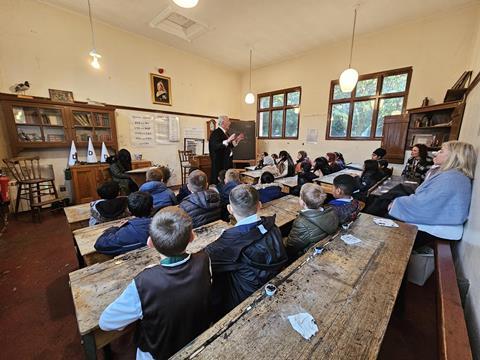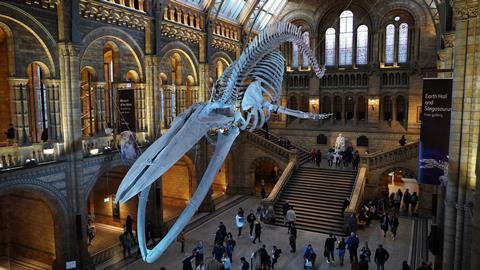Wayne Holder, business manager at Alderman Richard Hallam Primary School in Leicester, on organising primary school visits and opportunities for all pupils.

How does your role include the responsibility of organising school trips?
It originally came to me around nine years ago when our educational visits coordinator went on maternity leave. Due to the nature of my role and the overlap with various other responsibilities, it naturally transitioned to me. I already had considerable experience supporting school trips, often attending them as support staff. That made the process easier as I didn’t require classroom cover to go out on trips.
Over time, it made sense for trip coordination to become part of my responsibilities. Elements such as planning, logistics and risk assessments align closely with my role in health and safety. Now, having been in this role for about nine years, my focus is really on supporting staff, making the process as simple as possible, and offering guidance based on lived experience.

What kinds of trips do you organise?
We work hard to ensure that pupils experience a range of activities across their years at school. It’s important that each year group isn’t simply repeating the same trips and we try to vary the trips to provide different life experiences. Last year, we took reception to the theatre and Year 1 to the cinema to give them a taste of different cultural opportunities.
In Year 3, we usually take a trip to Skegness, which is one of the closest beaches to us. For many of our pupils, it’s their first time seeing the sea. When you see their faces light up at the sight of the waves, or when they get to enjoy ice cream and chips by the seaside, you realise just how valuable these experiences are. It’s like a mini summer holiday for them.
“The challenge is to create opportunities for those who wouldn’t usually have access to such experiences, and to do so in a way that’s inclusive and affordable.”
We’ve also recently reinstated our London trip, which was paused after Covid. Many children have never been to the capital, so we take them to the Natural History Museum, and they get to experience travelling on the Tube - an eye-opener in itself.
We’re also lucky to be near countryside and farmland. There’s a city farm close by and more rural options within a 20-minute drive. We take Year 6 pupils to the Peak District each year, where they complete an eight-mile hike. For some, that’s the first time they’ve walked through open countryside, seen a river in a valley, or shared a field with cows not behind a fence. It’s more than just seeing nature - it’s about truly experiencing it.

What different responsibilities are there when organising trips for younger and older pupils?
When we took a group of secondary students to France about 14 years ago there was a lot more independence given to them. Being in a different country brought its own considerations, but secondary students are afforded more freedom.
I remember one trip to Disneyland in particular. The children were told “be back at the meeting point by 4 o’clock,” and they were then allowed to go off in groups. Staff members took turns supervising different areas. It meant that, although we had some oversight responsibilities, our direct interaction with the children was more limited.
That is a big contrast to primary trips, where you’re constantly with the children. This allows for more interaction, not just supervision, but also teaching moments and bonding.
You can observe how they engage with their surroundings, support their learning and share in their excitement first-hand.

What challenges do you have to overcome when organising trips?
Some challenges are relatively minor, such as the novelty of parents calling during a trip to check in. While understandable, especially with younger children, it can add an extra layer of pressure when staff are already focused on supervision and safety.
One of the biggest ongoing challenges in recent years has been around payments and voluntary contributions. We would love to have the funding to provide enriching experiences for all children without needing to ask families for contributions. Unfortunately, that’s not the reality. Different schools have different funding models, contexts and priorities.
Our school context makes trip planning even more complex. We serve a very mixed community: some of our 900 pupils come from highly professional families, including doctors and academics, while others live in quite challenging circumstances. So, we always need to consider the accessibility and equity of every trip. We could, for example, plan an annual trip to France, but we know which families would consistently be able to afford it - and they’re often the ones whose children have already travelled abroad.
The challenge is to create opportunities for those who wouldn’t usually have access to such experiences, and to do so in a way that’s inclusive and affordable.
Would you like to tell us more about how you approach organising educational visits? Get in touch by emailing editorial@schooltravelorganiser.com.










